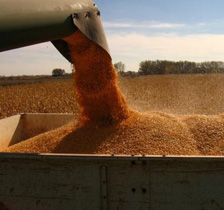US report uncovers egg safety issue in Iowa

One year after 1,900 people were sickened and a half-billion Iowa eggs were recalled, government inspectors continue to find unsanitary conditions and inadequate protections against salmonella on Iowa’s egg farms, reports the Des Moines Register.
Although it seemed like eggs had gotten safer with new federal regulations issued for the production of eggs and the historic agreement between the Humane Society and the United Egg Producers on hens’ living conditions, a report from the Des Moines Register shows just how far Iowa has to go on egg safety.
The paper’s investigation uncovered massive holes in regulation. It found, among other shocking lapses, that the state of Iowa has no protocols for inspecting egg farms, that many major egg producers hadn’t been visited by a federal inspector in years, and that egg producers are required to test for salmonella, but not to report positive results to any government agency.
In one passage, the Register highlighted the complications in the federal regulations regarding eggs:
Today, the US Department of Agriculture oversees the health of chickens, while the FDA is responsible for whole eggs. Oversight shifts back to the USDA when it comes to transportation of whole eggs. Broken eggs, which are made into liquid egg products, are overseen by the USDA, but the FDA oversees the storage of eggs at the retail level. The USDA grades eggs in production facilities, but health inspections in those same facilities falls to the FDA, which, until last year, had no rules or standards to enforce.
The paper argued that these gaps in oversight increase the eggs’ risk of salmonella contamination in the number one egg-producing state. The report included a note of reassurance from food safety consultant Jeff Nelken, who said eggs were generally safe.
The report can be read in full on the Des Moines Register website.
Source: Huffington Post













